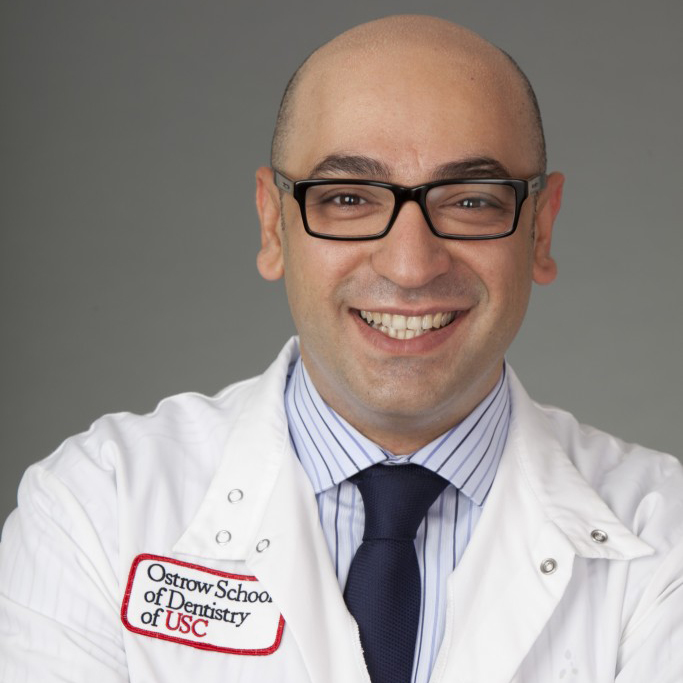Moshaverinia Receives 2015 Zumberge Individual Research Award

Posted
23 Apr 15
Alireza Moshaverinia PhD ’12, PROS ’12 has received a 2015 Zumberge Individual Research Award to develop a hydrogel that could help treat a common surgical complication from dental implants.
The prestigious award, worth $30,000, is just one of several hundred thousands of dollars that the James H. Zumberge Faculty Research and Innovation Fund bestows annually.
Supporting junior-faculty research
The Zumberge Awards are meant to support junior faculty members who are either launching their research careers or working in fields with limited support from external agencies.
Every year, researchers from across the university submit proposals to an interdisciplinary panel that judges the research and makes recommendations to the Office of the Provost, which makes the final decision on who will be granted research dollars.This year, there were only five Individual Research Award winners.
“As a junior faculty member, it’s so encouraging to see how heavily USC invests in research,” said the research assistant professor at the Herman Ostrow School of Dentistry of USC. “These resources can contribute significantly to the success of my scholarly endeavors at USC.”
Moshaverinia’s proposal
Moshaverinia aims to use the funds to develop a hydrogel that will deliver nourishing stem cells to patients suffering craniofacial bone loss from peri-implantitis, an inflammatory disease that causes irreversible bone and soft tissue loss around a dental implant.
“Bone regeneration is a dilemma in clinics,” he explained. “This hydrogel with stem cells has antimicrobial, anti-inflammatory and regenerative properties, which makes it a promising candidate for bone regenerative treatments.”
“Alireza continues the tradition of biomedical research being driven by patient care needs,” said Dr. Malcolm Snead, one of Moshaverinia’s mentors as well as the director of Ostrow’s division of biomedical sciences. “In doing this research, he reveals fundamental new knowledge about stem cell behaviors that are impossible to predict without experimental evidence.”
From dual-degree student to faculty member
Moshaverinia earned his doctor of dental surgery degree in Iran and his master of science degree in dental biomaterial from Ohio State University. At Ostrow, he pursued a dual degree—a doctor of philosophy degree in craniofacial biology and an advanced certificate in advanced prosthodontics.
In 2012, he finished his degrees and joined Ostrow’s faculty roster in 2014.
In the nearly decade since he began his research career, he’s had more than 45 peer-reviewed articles, two patent applications and has already earned funding from the National Institutes of Health.